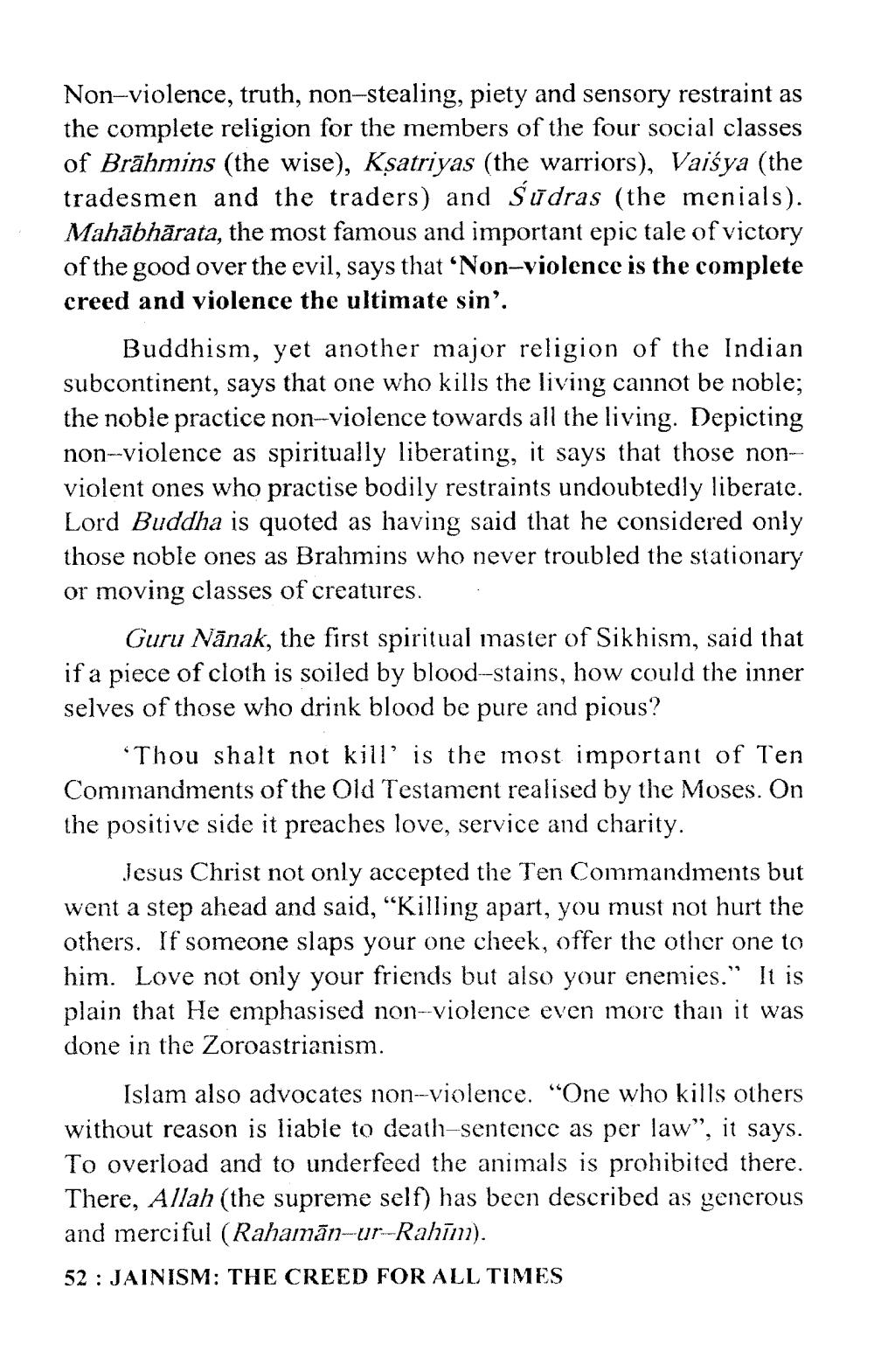________________
Non-violence, truth, non-stealing, piety and sensory restraint as the complete religion for the members of the four social classes of Brāhmins (the wise), Ksatriyas (the warriors), Vaisya (the tradesmen and the traders) and Sūdras (the menials). Mahābhārata, the most famous and important epic tale of victory of the good over the evil, says that ‘Non-violence is the complete creed and violence the ultimate sin'.
Buddhism, yet another major religion of the Indian subcontinent, says that one who kills the living cannot be noble; the noble practice non-violence towards all the living. Depicting non-violence as spiritually liberating, it says that those nonviolent ones who practise bodily restraints undoubtedly liberate. Lord Buddha is quoted as having said that he considered only those noble ones as Brahmins who never troubled the stationary or moving classes of creatures.
Guru Nanak, the first spiritual master of Sikhism, said that if a piece of cloth is soiled by blood-stains, how could the inner selves of those who drink blood be pure and pious?
“Thou shalt not kill' is the most important of Ten Commandments of the Old Testament realised by the Moses. On the positive side it preaches love, service and charity.
Jesus Christ not only accepted the Ten Commandments but went a step ahead and said, "Killing apart, you must not hurt the others. If someone slaps your one cheek, offer the other one to him. Love not only your friends but also your enemies." It is plain that He emphasised non-violence even more than it was done in the Zoroastrianism.
Islam also advocates non--violence. “One who kills others without reason is liable to death-sentence as per law”, it says. To overload and to underfeed the animals is prohibited there. There, Allah (the supreme self) has been described as generous and merciful (Rahaman-ur-Rahim). 52 : JAINISM: THE CREED FOR ALL TIMES




